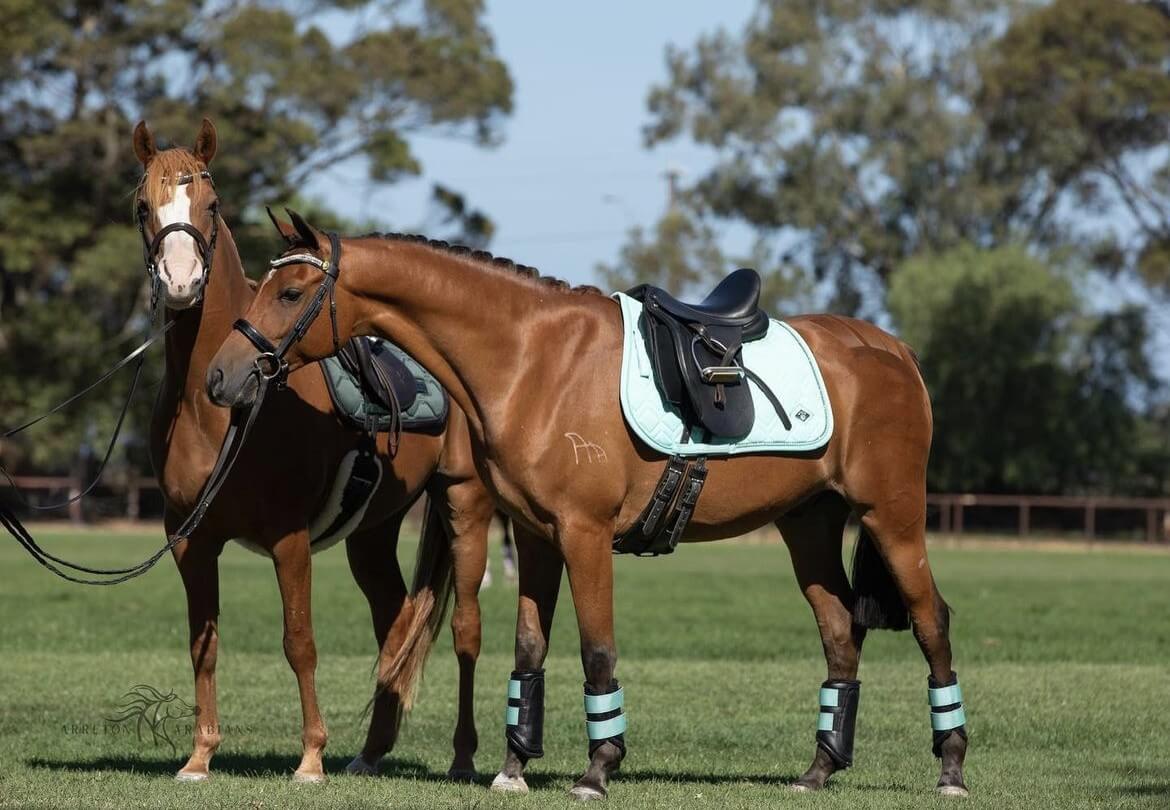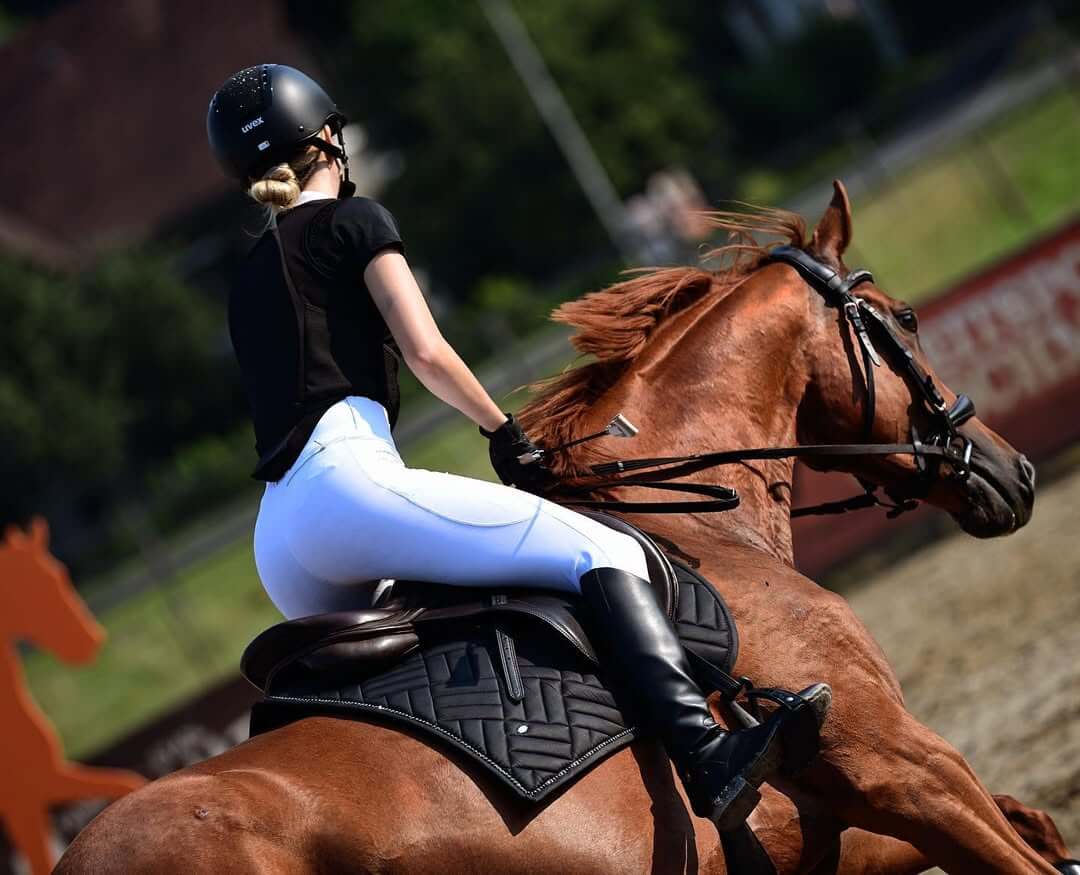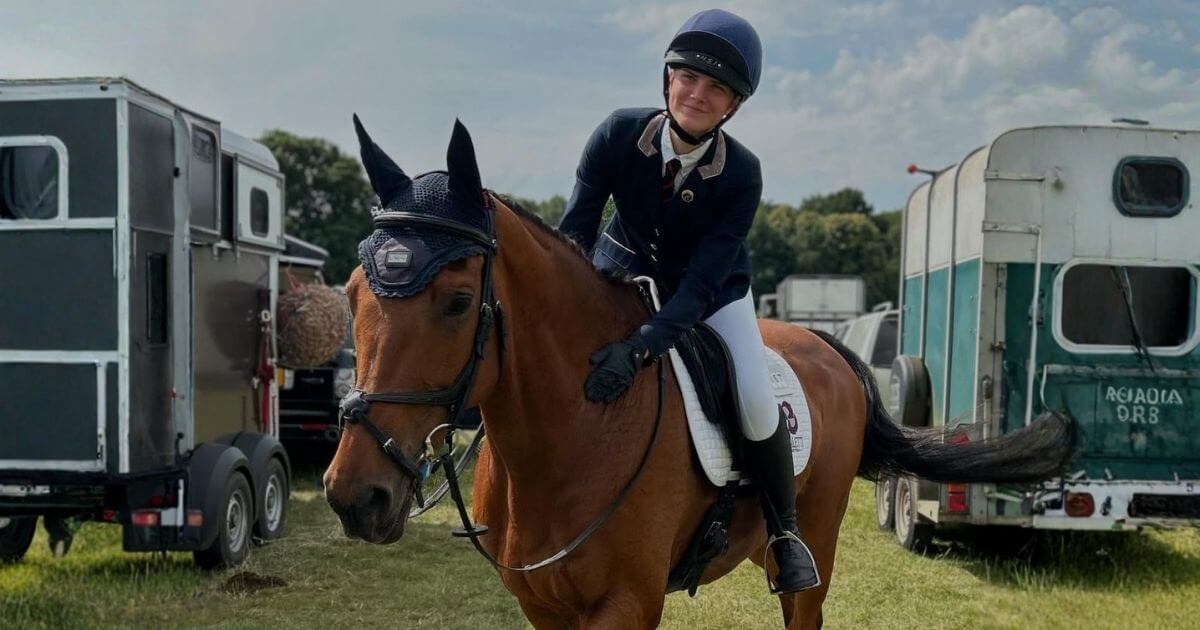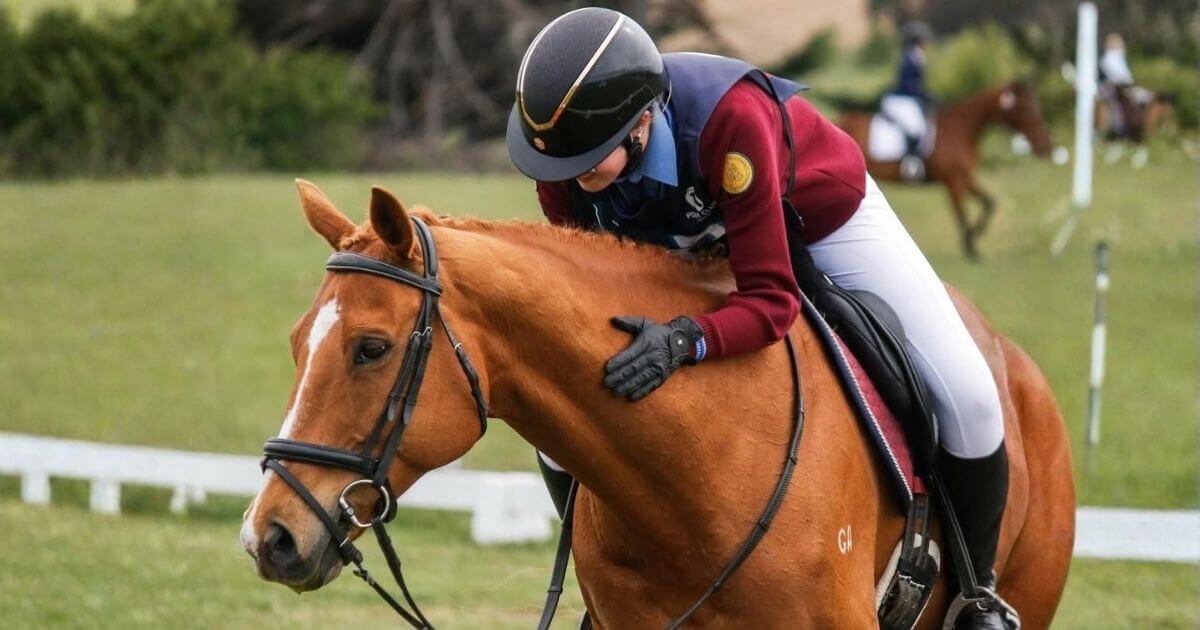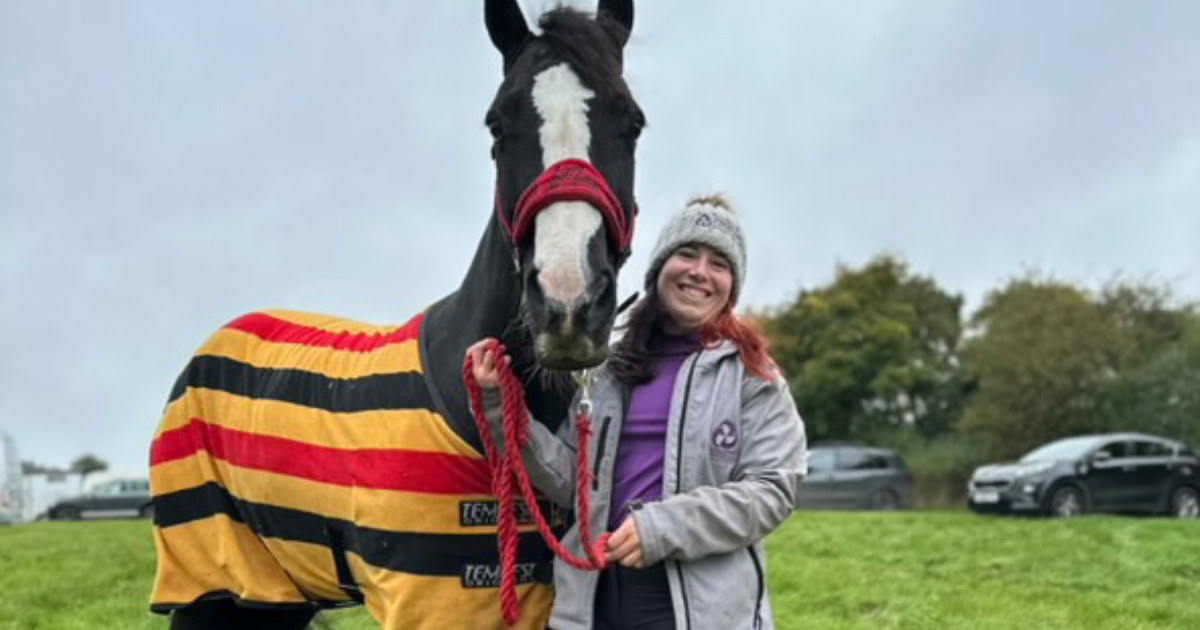Horse Behaviour Explained | Cavaletti
Table of Contents
How to tell when a horse doesn’t like something
How to tell when a horse is angry
How to tell when a horse is sad
How to tell when a horse is anxious
How to tell when a horse is ill
How to tell when a horse is happy
How to tell when a horse needs help
Horses are animals of prey and as such, their natural instinct is to flee when they feel threatened. However, because they have been domesticated by humans, they have learned to trust us and accept us as their herd leaders. This means that they look to us for guidance and reassurance, especially when they are feeling scared or anxious.
We always expect our horses to listen to us, but sometimes we forget to return the favour! Listening to your horse and understanding equine behaviour can be crucial in maintaining their health and wellbeing - after all, they can't tell us when they're feeling under the weather.
There are a few key things to look out for in your horse's behaviour that may indicate that they are trying to tell you something!
“I don’t like this!” (Horse Doesn’t Like Something)
Horses may not always agree with human decisions, and they aren't reluctant about expressing their disapproval. Their gestures can be fairly evident if your riding style or maintenance procedure makes them feel uncomfortable.
Your horse communication may try to tell you they don't like something by:
- Swishing their tail
- Shaking their head
- Gaping their mouths
- Yanking on the bit
- Pulling the rein out of the riders’ hands
If you notice your horse doing any of these things, it's a good idea to take a step back and try to understand why. There may be something about the activity that is causing them distress, and it's important to make sure they are always comfortable and happy. There's a good chance they're trying to communicate their discomfort to you and it's important to listen!
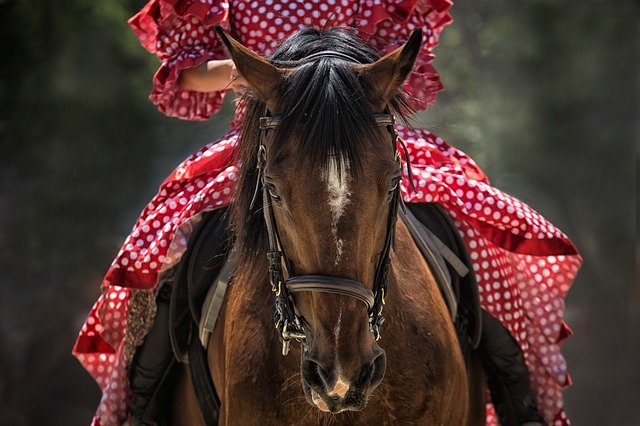
“Watch Out, I’m About To Get Cranky” (Horse Angry)
An uncomfortable girth is one of the main reasons a horse may get angry. If you notice your horse getting agitated or aggressive, it's important to check the girth to see if it is too tight or if there is anything else that may be causing discomfort. If you're unsure how to check your girth, read our article on
Another reason a horse may get angry is if they feel threatened or scared. This can happen if they are introduced to a new environment or if they are not comfortable with the rider. If you notice your horse getting angry, it's important to try to understand why and to make sure they are always feeling safe and secure.
In these situations, it's important to be aware of your horse's body language so you can tell if they're getting angry.
Some signs that your horse is getting angry include:
- Pinning their ears back
- Growling or snorting
- Swishing their tail
- Kicking out
- Baring their teeth
If you see any of these signs, it's best to back off and give your horse some space. They may just need a moment to calm down, or they may be trying to tell you that they're not in the mood to work.
“I’m feeling depressed” (Horse Sad)
Horses can get depressed just like humans! If you notice your horse becoming withdrawn or lethargic, it may be a sign that they are feeling down.
Depressed horses have a distinct body language that is easy to spot once you know what to look for. They adopt a 'fixed' stance, standing steady for several minutes in a particular position with their weight carried to the front, neck horizontal and lower but extended out, eyes wide, and ears motionless. They frequently face the wall and appear to be completely oblivious to their surroundings, as if they've suddenly cut themselves off.
There are a few different things that can cause horses to feel depressed, including:
- Lack of exercise
- Boredom
- Poor nutrition
- Feeling isolated from other horses
If you think your horse may be depressed, it's important to try to understand why. Often, the problem can be easily fixed by making some changes to their routine or environment.
“This is making me stressed..” (Horse Anxious)
Horses can get stressed just like humans! If you notice your horse becoming anxious or nervous, it may be a sign that they are feeling overwhelmed.
Anxious horses have a distinct body language that is easy to spot once you know what to look for.
They will frequently:
- Pace back and forth,
- Sweat
- Flick their tails
- Have their ears pinned back
- Paw the ground
- Bite at their bit
If you see any of these signs, it's important to try to understand why your horse is feeling stressed and to make sure they are always feeling safe and comfortable. Often, the problem can be easily fixed by making some changes to their routine or environment.
“I don’t feel too good” (Horse ill)
Colic in horses is one of the most common reasons for their discomfort, and it can lead to death. Colic is a general term used to describe abdominal pain in horses. It can be caused by a variety of things, including gas, ulcers, infection, and blockages.
If you notice your horse acting colicky, it's important to seek veterinary help immediately.
Some signs that your horse is colicky include:
- Pawing at the ground
- Restlessness
- Sweating
- Rolling
- kicking out
- Looking at their side
If you see any of these signs, it's important to seek veterinary help immediately. Colic can be a very serious condition, and it can often be fatal if not treated quickly.
“This is fun, I love it!” (Horse happy/excited)
Horses are social animals, so it's not surprising that they enjoy being around other horses. If you see your horse acting playful or excitable, it's a good sign that they're happy and enjoying themselves.
Some signs that your horse is happy (or too excited) include:
- Picking up their feet
- Bucking
- Nipping
- Running
- Kicking up their heels
- Rubbing themselves against you
- Playing
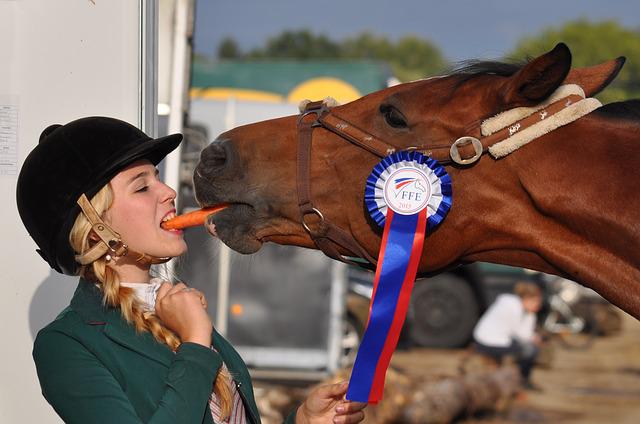
If you see any of these signs, it's a good sign that your horse is happy and enjoying itself. Horses are social animals, so it's important to make sure they have plenty of opportunities to socialize with other horses. With that said, bucking, nipping and running can also be a sign of distress, so you'll have to judge the situation at hand and decide if your horse is happy or slightly annoyed!
“Can I get some help, please?” (Horse needs some help/assistance)
If you see your horse standing still and looking at you, it may be a sign that they need some help. Horses are very independent animals, so if they ask for help, it's important to listen.
Some signs that your horse needs some help include:
- Standing still and looking at you
- Breathing heavily
- Pressing their head against you
If you see any of these signs, it's important to try to understand what your horse needs and to provide them with the help they need. Often, the problem can be easily fixed by making some changes to their routine or environment.
Listen to your horse
Horses are very good at communicating their needs, so it's important to always be listening. If you notice your horse behaving differently, it's important to try to understand why. Often, the problem can be easily fixed by making some changes to their routine or environment.
Pay attention to your horse's body language and always be ready to provide them with the help they need! If you enjoyed this article, and if you have a horse of your own, consider joining our ambassador program to receive exclusive benefits on tack and a feature on our website!






